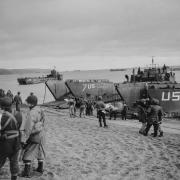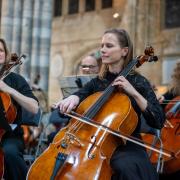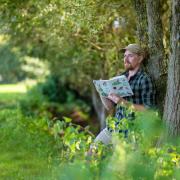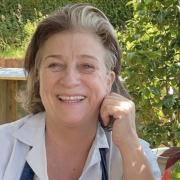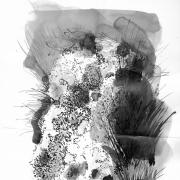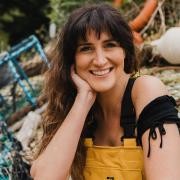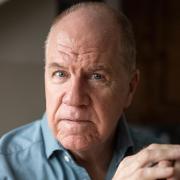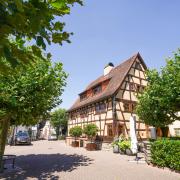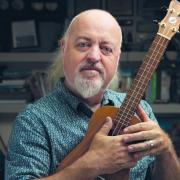From fitness and fighting fires to women in the fire service, Hilary Davey talks to Laura Dale about being a firefighter
I ask my eight-year-old daughter, ‘How many women firefighters do you think there are out of 100 firefighters?’ It’s like one of those homeschooling maths questions, except it doesn’t involve bus money or buying fruit. It also feels like the start of a bad joke – and in some ways, it is.
Ava looks at me and says, ‘I think there would be more men.’ ‘Maybe 60 men and 40 women,’ she concludes. The actual answer, I tell her, is eight women and 92 men. Ava looks suitably shocked and thinks this is completely ridiculous and, to be honest, so do I.
Hilary Davey, 28 years old and from Woolacombe, works at Middlemoor Fire Station in Exeter. She was one of 15 people to get a wholetime firefighter position when Devon and Somerset Fire Service began recruiting after eight years of a recruitment freeze. More than 3,000 men and women applied for the positions.

Hilary says: ‘I am 100 per cent for more women in the fire service, but it’s about equality. Firefighters are people that are interested in saving lives and helping the community. Your team needs to know you can be relied upon in an emergency.’
At fire stations across the UK, it’s a given that women will train as hard as their male counterparts; be reliable and relied upon, keep a clear head in stressful situations, save lives and serve their communities.
Unfortunately, there’s still a long way to go in recruiting more female firefighters into the Fire Service across the UK. In Devon, there are 779 firefighters and only 66 are female – that’s only eight per cent.
Hilary is reluctant to be labelled a heroine, but it’s a word that encapsulates her position; she is a woman, admired for her courage and outstanding achievements.
She says, matter-of-factly: ‘I don’t think people would call us heroines or heroes. I am glad that we have the skill sets that mean we can help in the community. We always just do our best and we keep on top of the training, so that we can provide the best help.’
Hilary grew up in Woolacombe where her dad and later, her brother, were firefighters. Her dad was the watch manager at a retained station.

Hilary recalls: ‘Sometimes dad would get a call out in the middle of the night and the alerter would wake the house up. I would watch the fire engine going up the hill and I felt excited by it all.’
She continues: ‘When I was at primary school we had a firefighter come to talk to us about their job. The firefighters we knew were normal people from just down the road and this really stuck out to me. I remember what classroom it was in at primary school and I remember the fact that it was a woman who came to talk to us.’
Whether it was tackling hotel fires or being a first responder, Hilary initially saw her dad’s firefighting as a job that was about helping the community. It wasn’t about risking your life or being faced with losing the people you were trained to save.
Hilary’s view changed when her dad responded to an emergency at the local secondary school. Hilary remembers: ‘A pupil at the school, who was a Jehovah’s Witness, had a medical episode and dad was in the terrible position where he could not help the boy – because of the boy’s beliefs – and unfortunately the boy died. I remember being quite affected by that. Everyone else was very opinionated about it. I eavesdropped quite a bit more after that. I was more wary of any time dad went out – did it end well or badly?’

After secondary school, Hilary studied human biosciences at the University of Exeter. Having maintained a high level of fitness throughout her student days, Hilary took a temporary role with Devon and Cornwall Fire and Rescue Service as a fitness advisor. Hilary says: ‘Firefighters struck me as really capable and confident people.’
Hilary applied for a role as a wholetime firefighter and got it, but the hard work had only just begun. She explains: ‘It was 12 weeks training out of service at a residential training school in Avonmouth. We were trained in how to use pumps and ladders, fire behaviour, safety at height and water risk.’
Things didn’t get any easier and Hilary’s first night shift was her first fire. She recalls: ‘It was 4am and it was pitch black. I was fully kitted out with breathing apparatus and I opened the front door of the house and it was full of smoke – to about a foot off the floor – and it was pitch black. All I could see was the first step of the staircase. It was exciting and nerve-wracking.’
Carrying heavy firefighting equipment (and often casualties) is all part of the job, so having a high level of fitness is essential and it’s something Hilary takes very seriously. She says: ‘I work in a whole-time station with a watch of seven people, it’s very much like a family. The team can rely on me to lift and carry heavy things.’
It’s clear that Hilary is exceptionally capable and she has worked hard to enter a career that is demanding, both physically and mentally, and in high pressured situations. In this sense, gender quotas risk undermining the legitimacy of competent women like Hilary, who work hard in their chosen careers and achieve a lot; but, at the same time more needs to be done to recruit worthy candidates like Hilary into the Fire Service. After listening to Hilary’s story, I find myself agreeing with my daughter – why can’t 40 percent of firefighters be women?

Supporting women firefighters
Devon and Somerset Fire and Rescue Service (DFRS) runs Have a Go days which are open to potential applicants. They can ask questions and test out some of the practical tasks involved in being a firefighter.
DSFRS holds recruitment fitness sessions for female applicants to test out the exercises in preparation for the real thing.
DSFRS women’s network is a safe place for women to come together to share experiences, learn, mentor and inspire each other. The network is affiliated with Women in the Fire Service. There is also a menopause working group.
Caroline Anderson MBE is the vice chair for Women in the Fire Service. She works within DSFRS, encouraging women in the fire service.
A number of female firefighters from across the UK recently attended the WFS at the UK Fire Service Training College, where they had the opportunity of working alongside and learning from some of the UK Female Fire Chiefs, including Danny Cotton from London, Kath Billings from Cornwall and Alex Johnson from South Yorkshire.




